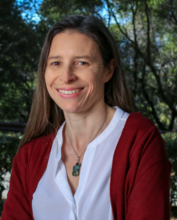SusTech Talk Jan 2025 – Sequence-based interrogation of soil microbiomes and their ecosystem benefits
“Sequence-based interrogation of soil microbiomes and their ecosystem benefits”
with Susannah Green Tringe, Lawrence Berkeley National Laboratory
Date/Time: Tuesday, January 28, 2025; 6:00-7:00 pm PST, 9-10 pm EST
Register: https://events.vtools.ieee.org/event/register/452888
Abstract:
Plants roots and the soil they grow in are heavily colonized with microbes that play critical roles in nutrient cycling and transport as well as influencing plant growth and health. Molecular methods including DNA sequencing have begun to elucidate the forces governing the assembly and maintenance of plant and soil microbial communities, offering the opportunity for these microbial communities to be nurtured and manipulated to promote plant growth and health as well as soil health and ecosystem functions.
We have combined omics methods, biogeochemical assays, and gas flux measurements to investigate the factors influencing greenhouse gas emissions from natural and managed wetland systems. By integrating these datasets we find that gas fluxes represent a complex interplay of biological, chemical, and physical factors that vary across habitats. Our results suggest considerable heterogeneity in fluxes even in physically proximate locations that have implications for the success of wetland preservation and restoration as a carbon storage strategy, particularly in the context of sea level rise.
In agricultural systems, we find that different plant compartments (e.g. rhizosphere and root endosphere) harbor unique and dynamic microbial communities heavily influenced by the soil, surrounding environment and host genotype. Abiotic stress, such as drought and low nitrogen, can alter both the composition of these communities and their interactions with each other and the plant. Our sequence-based characterizations of plant-associated communities, leveraging a variety of bioinformatic tools, have identified key populations that structure the community and respond dynamically to environmental changes, representing potential targets for improvement of plant resilience.
Biography:
 Susannah Green Tringe is the Director of the Environmental Genomics and Systems Biology division at Lawrence Berkeley National Laboratory as well as Director of the Center for Restoration of Soil Carbon by Precision Agricultural Strategies (RESTOR-C). She received her undergraduate degree in Physics from Harvard University then went on to a Ph.D. in Biophysics from Stanford University, and joined Berkeley Lab as a postdoc at the Joint Genome Institute in 2003. There she developed techniques for using DNA sequence data for comparative analysis of whole microbial communities, rather than individual organisms. Her current research focuses on using nucleic acid sequence data to study communities of microbes from diverse environmental niches and understand their assembly and function, with the goal of harnessing them for improved environmental and agricultural outcomes. These studies involve a combination of field, lab, and computational approaches to link molecular data to ecosystem processes. Her major research interests include how microbes interact with plants to affect growth, health and stress resistance, how microbes influence greenhouse gas uptake and release in wetlands and agricultural systems, and how microbes can be exploited to enhance soil carbon storage and to break down natural and man-made contaminants.
Susannah Green Tringe is the Director of the Environmental Genomics and Systems Biology division at Lawrence Berkeley National Laboratory as well as Director of the Center for Restoration of Soil Carbon by Precision Agricultural Strategies (RESTOR-C). She received her undergraduate degree in Physics from Harvard University then went on to a Ph.D. in Biophysics from Stanford University, and joined Berkeley Lab as a postdoc at the Joint Genome Institute in 2003. There she developed techniques for using DNA sequence data for comparative analysis of whole microbial communities, rather than individual organisms. Her current research focuses on using nucleic acid sequence data to study communities of microbes from diverse environmental niches and understand their assembly and function, with the goal of harnessing them for improved environmental and agricultural outcomes. These studies involve a combination of field, lab, and computational approaches to link molecular data to ecosystem processes. Her major research interests include how microbes interact with plants to affect growth, health and stress resistance, how microbes influence greenhouse gas uptake and release in wetlands and agricultural systems, and how microbes can be exploited to enhance soil carbon storage and to break down natural and man-made contaminants.

